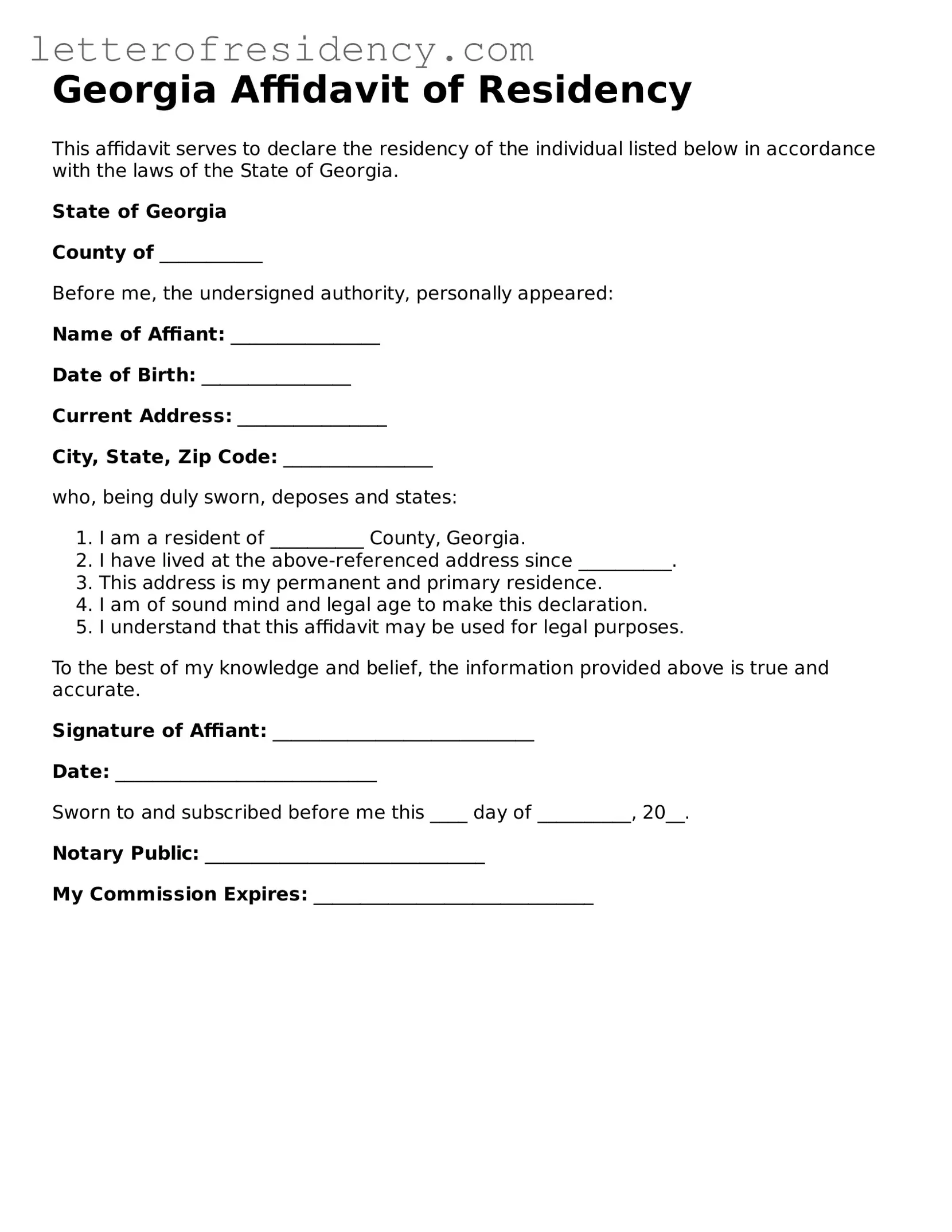What You Should Know About This Form
-
What is the Georgia Affidavit of Residency form?
The Georgia Affidavit of Residency form is a document used to verify a person's residence in the state of Georgia. This form is often required for various purposes, such as enrolling a child in school, obtaining a driver's license, or applying for certain government benefits.
-
Who needs to fill out the Affidavit of Residency?
Typically, individuals who are applying for residency-based services, such as parents enrolling their children in public schools, need to complete this form. It may also be required for individuals seeking to establish residency for legal or financial reasons.
-
What information is required on the form?
The form generally requires personal information, including the name and address of the individual claiming residency, as well as the name of the person who is verifying that residency. In some cases, additional details such as the length of time at the residence and the relationship between the parties involved may also be needed.
-
How do I obtain the Georgia Affidavit of Residency form?
The form can often be obtained from local school districts, government offices, or online through official state websites. It is important to ensure that you are using the most current version of the form to avoid any delays in processing.
-
Is the Affidavit of Residency form legally binding?
Yes, the Affidavit of Residency is a legal document. By signing it, individuals affirm that the information provided is true and accurate. Providing false information on this form can lead to legal consequences, including penalties or loss of benefits.
-
Do I need to have the form notarized?
In some cases, notarization may be required to validate the document. It is advisable to check the specific requirements of the institution or agency requesting the form, as they may have different policies regarding notarization.
-
Where do I submit the completed form?
Once completed, the form should be submitted to the relevant agency or institution requesting it. This could be a school, government office, or another organization. Ensure that you keep a copy for your records.
-
What should I do if I have questions about the form?
If you have questions about completing the Georgia Affidavit of Residency form, it is best to contact the organization that requires it. They can provide specific guidance and clarify any uncertainties you may have.
